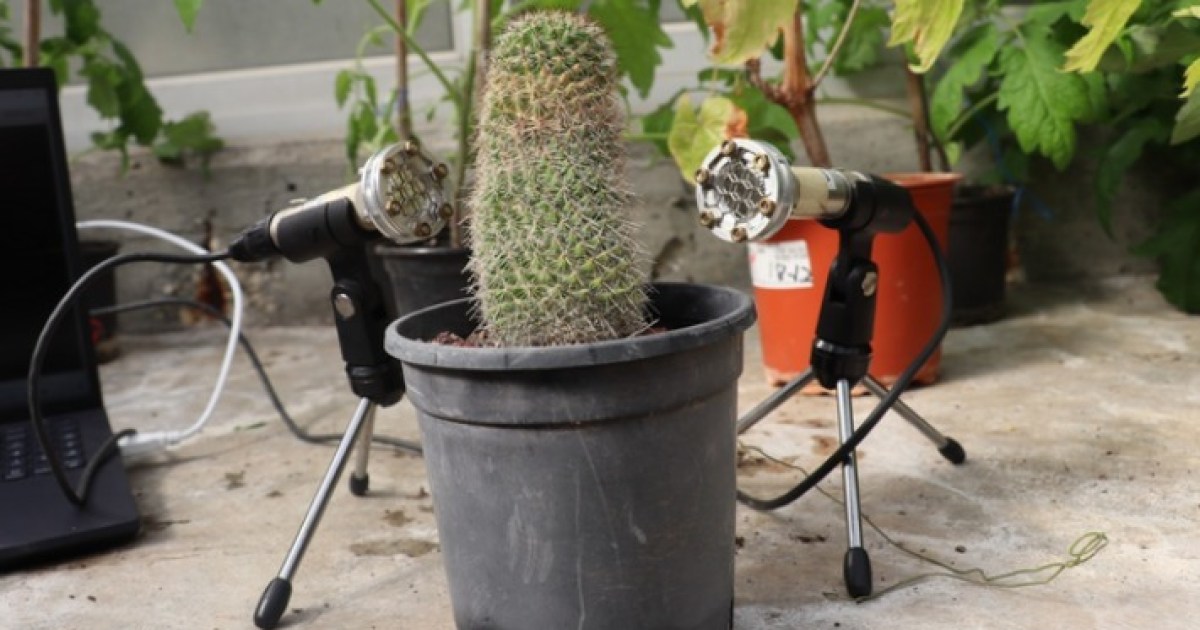An unprecedented global breakthrough has been made by researchers at Tel Aviv University who have recorded and analyzed sounds that are distinctly emitted by floors. Popcorn-like popping sounds are produced at a volume similar to human speech, but at high frequencies, beyond the range of the human ear.
“We found that plants typically make sounds when they are under stress, and that every plant and every type of stress is associated with a certain identifiable sound. Although the sounds made by plants are not perceived by the human ear, they can probably be heard by various animals, such as bats, mice and insects, ”the scientists say.
Similar videos
The study was led by Leelah Hadani of the School of Plant Science and Food Safety at the Wise School of Life Sciences, along with Prof. Yossi Yovel, director of the Sagol School of Neuroscience and faculty member of the School of Zoology and the Steinhardt School. Museum of Natural History and research students Itzhak Hait and Ohad Levin-Epstein. in collaboration with researchers from the Raymond and Beverly Sackler School of Mathematical Sciences, the Cereal Research Institute, and the Sagol School of Neurology, all at Tel Aviv University. Article published in a prestigious scientific journal Cell.
“We know from previous research that vibrometers attached to plants register vibrations. But do these vibrations also become sound waves in the air, that is, sounds that can be recorded at a distance? Our study touched on this issue, which scientists have been discussing for many years,” said Professor Hadani.
In the first phase of the study, the researchers placed the plants in an acoustic box in a quiet, isolated basement with no background noise. At a distance of approximately 10 cm from each plant, ultrasonic microphones were installed that record sounds at frequencies of 20-250 kHz (the maximum frequency that an adult perceives is approximately 16 kHz). The study focused mainly on tomato and tobacco plants, but wheat, corn, cactus, and whitefly were also recorded.
Hadani commented: “Before we placed the plants in the acoustic box, we subjected them to several treatments: some plants were not watered for five days, some were cut off the stems, and some remained intact. Our goal was to check whether plants make sounds and whether these sounds are affected in any way by the state of the plant. Our records showed that the plants in our experiment made sounds at frequencies of 40-80 kHz. Unstressed plants made an average of less than one sound per hour, while stressed plants, both dehydrated and damaged, made dozens of sounds every hour.
The records collected in this way were analyzed by specially developed machine learning (AI) algorithms. The algorithms learned to distinguish between different plants and different types of sounds, and were eventually able to identify the plant and determine the type and level of stress in the recordings. In addition, the algorithms identified and classified plant sounds even when the plants were placed in a greenhouse with a lot of background noise. In the greenhouse, the researchers observed the dehydrated plants over time and found that the amount of noise they made increased to a certain peak and then decreased.
Professor Hadani concluded: “In this study, we have resolved a long-standing scientific dispute: we have proven that plants make sounds! Our findings suggest that the world around us is full of plant sounds, and that these sounds contain information, such as lack of water or injury. We assume that in nature the sounds made by plants are picked up by nearby creatures such as bats, rodents, various insects and possibly also other plants that can hear high frequencies and receive relevant information. We believe people can use this information, too, with the right tools, such as sensors that tell growers when plants need to be watered. At first glance, an idyllic field of flowers can be quite a bustling place. We just don’t hear sounds!
Source: Digital Trends
I am Garth Carter and I work at Gadget Onus. I have specialized in writing for the Hot News section, focusing on topics that are trending and highly relevant to readers. My passion is to present news stories accurately, in an engaging manner that captures the attention of my audience.










